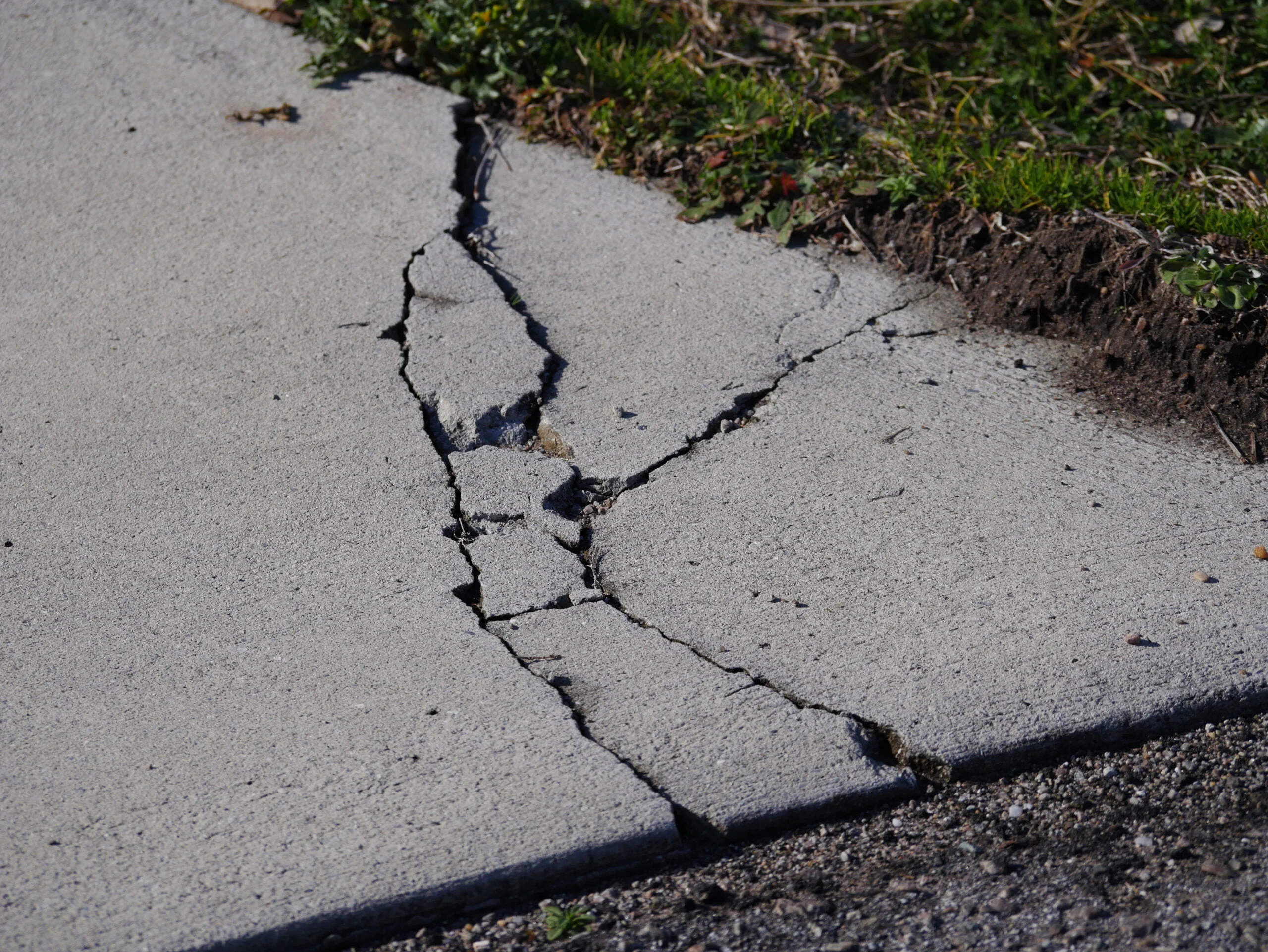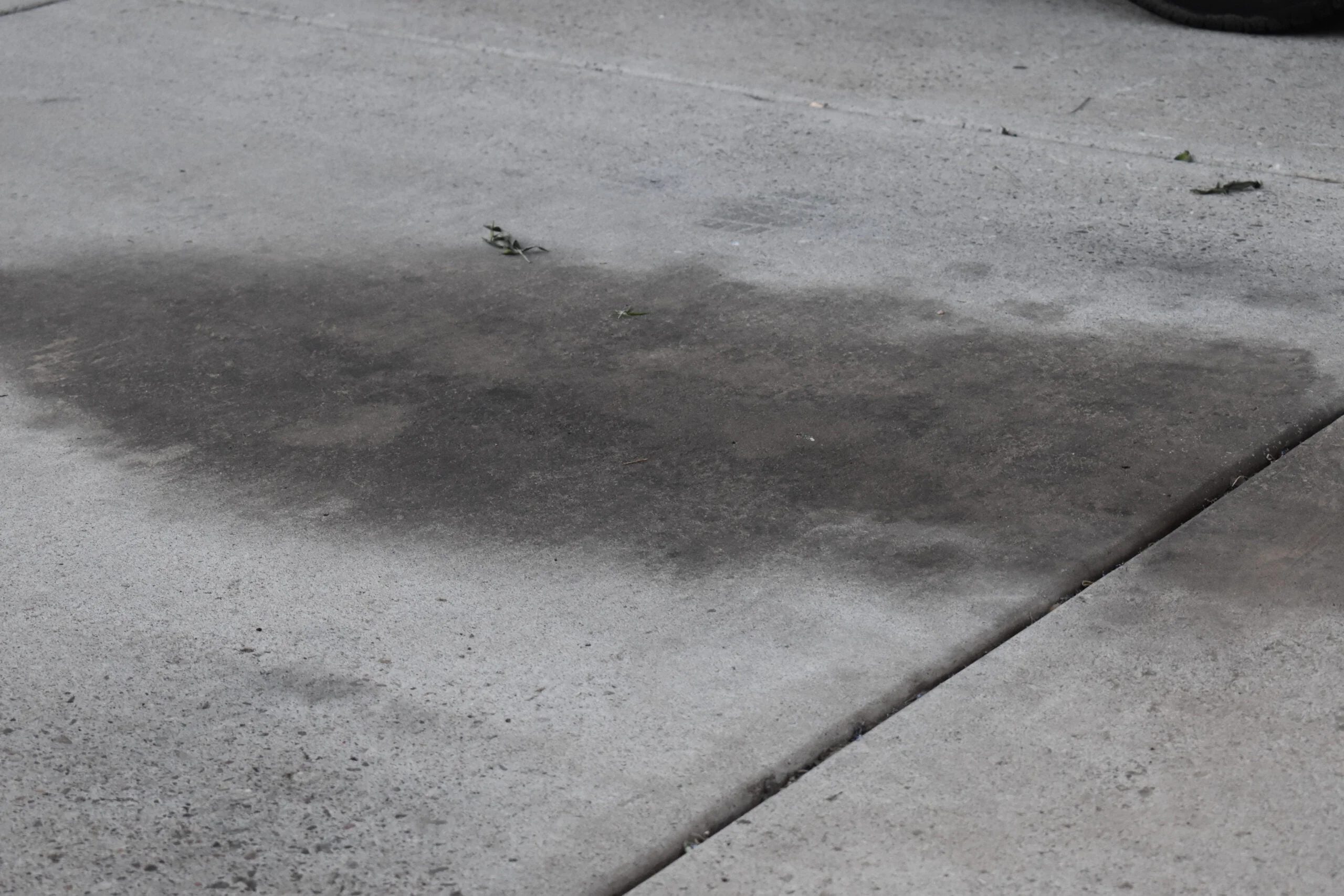It starts as just a trickle — an innocent little stream of water running down the driveway. Maybe you blame it on the rain you’ve been having lately, or assume the neighbor is over-watering their lawn again.
But over time, that trickle grows. Soon, you see pools of water around your home or on the road. You notice that your water bill is going up, even though you don’t feel like you’re using more. Eventually, your home’s water pressure starts to drop.
Uh oh… you’ve got a water leak under the driveway. How do you fix it, and what’s the cost to repair a water leak under the driveway?
Here’s what you need to know about this common plumbing issue.
Why is Water Coming from Under My Driveway?
A few common culprits often cause a water leak under the driveway. Over time, pipes can simply wear out with age. Even if pipes are still intact, changing temperatures and shifts in the soil can move then, causing breaks and leaks.
Tree roots may grow into the pipes, causing them to break. And sometimes, pipes are made from inferior material, causing corrosion and failure.
Regardless of the cause, a leak must be fixed. If it’s left too long, not only will your water bill spike, but you may incur damage to your home and property.
What are the signs you have a water leak? Look for these red flags:

Water Pooling Around Your Property
If you see a trickle, look beside and around your driveway for evidence of pooling water. Water will flow to the lowest spot in its path, so check for puddles and damp spots in low-lying areas.
The issue may be due to corroded or burst pipes or, in a worst-case scenario, a broken water main. The water main is a large pipe that connects to a service pipe. It’s the main source of water for your home and property.
Water main leaks can quickly turn into huge hassles, and it’s best to call in a professional immediately if you suspect yours is broken.
Spiking Water Bills
Sometimes, there’s not much physical evidence of a water leak. But your water bill may show that there’s a problem.
Take a look at your last few water bills and look for an increase in usage. It may take the form of a sudden spike from one month to the next, or a slower increase over time.
If you haven’t been drinking extra water, using your washing machine or dishwasher more than normal, or irrigating your landscape more frequently, this may indicate a water leak.
Decreasing Water Pressure
When a water leak worsens, you may notice a loss of water pressure in your home. Measure water pressure with a gauge or ask your utility to come to check the pressure for you.
In most cases, the homes water pressure should read between 40 to 50 psi. Anything under this may point to a leak.
Hissing or Rumbling Sounds
The water main comes into your house below the ground, usually in a crawl space or basement. Head down and listen for any unusual sounds, such as rumbling or hissing.
It’s best to listen when the water isn’t being used. If you hear a sound, you may have a leak.

Is There a Tool to Detect Water Leak?
If you suspect you have a water leak but just aren’t sure, take these steps:
- Find your external water meter
- Ask everyone in your house to stop using water
- Turn off all appliances that use water, such as washing machines and dishwashers
- Turn off the inside water at the stop valve (often found under the kitchen sink)
- Turn on the kitchen sink faucet to make sure the stop valve is off. Nothing should come out.
- Go back to your water meter and take a reading.
- Leave all water off for one hour then take another reading.
If the water meter goes up during this period, you probably have a water leak.
How Do I Find a Leak Under Concrete?
Finding a leak under concrete isn’t simple. It’s not usually a job that can be done yourself.
You’ll need to call in professionals to pinpoint the leak. They’ll have leak detection tools that use acoustic and thermal technology to find the source of the water leakage.
How Do I Fix Water Pipes Under My Driveway?
When a pipe bursts under a driveway, repairs often involve excavation. In such cases, the concrete slab must be broken and the underlying pipe fixed or replaced. Then the concrete is repaired.
Alternately, the underground pipes may be re-routed above ground. That way, the concrete can remain intact.
Sometimes the leaking pipe can be “re-lined.” This involves pushing a liner through the existing pipe; made of epoxy, the liner then hardens, sealing any cracks and leaks.
How Much Does It Cost to Fix an Underground Water Leak?
The average cost of fixing an underground water line leak runs to about $3,000. Repairing a corroded water main runs to about $5,000.
Usually, you’ll pay for materials (such as pipes and valves) as well as labor costs, which run from $70 to $120 per hour, according to HomeAdvisor.
Unfortunately, a broken water leak is one of those repairs that you can’t just ignore. It won’t just go away on its own; in fact, it’ll get worse. Over time, water will cause damage to your property and landscaping.
What happens if you want to sell your home with a water leak under the driveway? For many potential homebuyers, such a big fix would be a deal breaker.
Instead, sell to HomeGo. HomeGo buys homes as-is, so you don’t need to give repairs a second thought. Instead, you’ll receive a same-day offer and your home sale will close in as little as two weeks.
Contact HomeGo today and learn about your options for selling a home with a water leak under the driveway.




